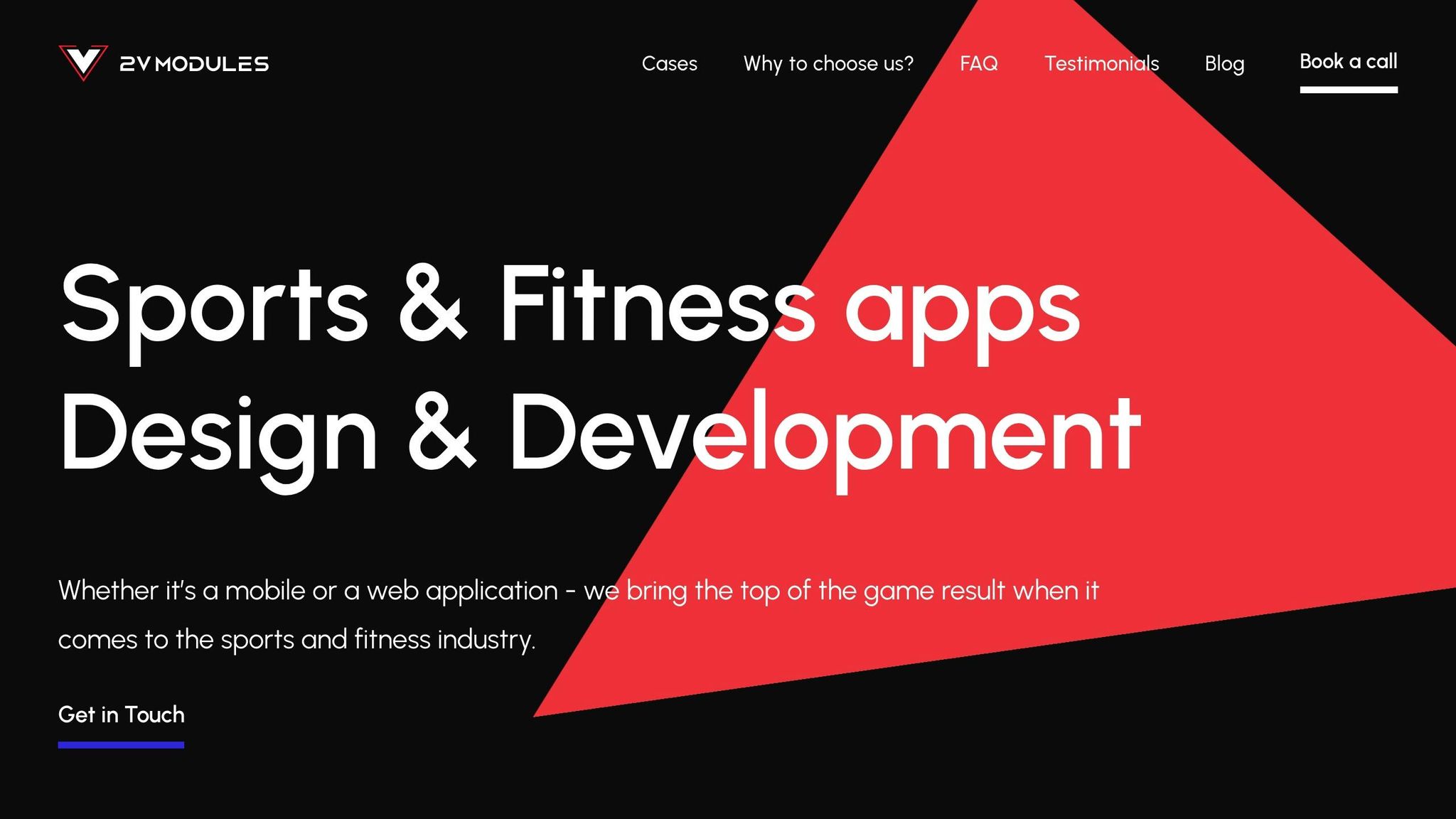When deciding between white-label apps and custom apps, the choice impacts your technical support, costs, and flexibility. Here’s a quick breakdown:
- White-Label Apps: Pre-built platforms with vendor-managed support. They’re quick to launch, cost less to maintain, and require minimal in-house expertise. However, customization is limited.
- Custom Apps: Built from scratch to meet specific needs. They offer full control and flexibility but require higher investment in maintenance, dedicated teams, and technical skills.
Quick Comparison
| Feature | White-Label Apps | Custom Apps |
|---|---|---|
| Support | Vendor-provided | Dedicated team required |
| Customization | Limited | Unlimited |
| Launch Time | Weeks | Months or longer |
| Maintenance Cost | $10,000/year (avg.) | $15,000–$20,000/year |
| Technical Skills | Minimal | Extensive |
| Integration Options | Pre-built features only | Fully customizable |
Key Takeaway
If you need a quick, low-maintenance solution, white-label apps are ideal. For businesses requiring tailored features and long-term scalability, custom apps are worth the higher investment. Choose based on your technical resources, growth plans, and budget.
Support Differences: White-Label vs Custom Apps
White-Label Apps: Standard Support Model
White-label apps come with ready-made support systems designed to minimize IT workload. These solutions often include pre-established maintenance routines and fixed support channels. By using white-label technologies, businesses can cut development and support time by up to 60%.
Key support features of white-label apps typically include:
- Mandatory email support to handle user inquiries
- Optional self-service portals for troubleshooting
"White-label services may be an important aspect of a startup’s growth plan… Startups must choose partners who share their vision, deliver high-quality solutions, and give dependable assistance to enable a smooth and successful development path."
Custom Apps: Direct Support Requirements
Custom apps require a more personalized approach to support and maintenance. These apps often need dedicated teams familiar with their specific codebases. The complexity of custom solutions is evident in the global app development market, which is expected to surpass $200 billion by 2025. For businesses in the sports sector, custom apps demand continuous, hands-on support to manage updates and resolve issues. This is especially true for companies specializing in sports-related applications.
2V Modules: A Custom Sports App Example

2V Modules demonstrates the detailed support strategy necessary for custom sports apps. Their approach includes ongoing post-launch assistance for features like workout tracking, video libraries, and device integration. This direct support ensures quick fixes and timely updates.
Some key benefits of their model include:
- Dedicated technical teams with in-depth knowledge of the app
- Flexible update schedules to meet changing needs
- Direct issue resolution without relying on third-party vendors
- Specialized support for sports-specific functionalities
With global mobile app revenue surpassing $935 billion in 2023, choosing the right support model is critical. White-label apps offer a quick and structured deployment option, while custom apps provide the adaptability and control needed for tailored sports applications – though they come with higher support demands.
All You Need to Know About White Label Apps in 2025
Support Requirements Analysis
This section breaks down the cost, time, skills, and features involved in maintaining white-label and custom apps.
Support Costs
The expenses for maintaining apps vary significantly between white-label and custom solutions. White-label apps typically have lower ongoing costs, averaging 15%–20% of the original development budget. Standard technical support for these apps may cost about $10,000 per year, while hosting fees range from $70 to $320 per month. On the other hand, custom apps come with higher maintenance budgets. For instance, maintaining a cross-platform custom app can cost between $15,000 and $20,000 annually, with bug fixes priced at $1,000 to $2,000 per incident and payment gateway integrations costing $149 per month. Let’s dive into support hours next.
Support Hours
The time required for support also differs. White-label apps benefit from standardized systems, with technical support typically billed at $35 to $50 per hour. Custom apps, however, require more support hours due to their unique architecture. For example, the removal of 1.1 million apps from the Google Play Store in Q2 2024, where 74% were purged due to lack of updates, highlights the critical need for regular maintenance in custom solutions.
Technical Skills Required
White-label apps are backed by vendor-managed support, reducing the need for in-house expertise. Custom apps, however, demand a wider range of skills, including front-end and back-end development, advanced security measures, automation, and effective communication among stakeholders.
Support Features Comparison
| Feature | White-Label Apps | Custom Apps |
|---|---|---|
| Technical Support | Standard vendor support | Dedicated development team |
| Update Frequency | Regular scheduled updates | Flexible, as-needed updates |
| Maintenance Cost | 15–20% of initial cost | $15,000–$20,000 annually |
| Bug Resolution | Standard response time | Priority handling |
| Security Updates | Vendor-managed | Tailored implementation |
| Integration Support | Limited to existing options | Extensive possibilities |
"On average, app maintenance costs 15% – 20% of the total mobile app development cost." – Space-O Codecast
Selecting Your App Type
Decision Factors
When deciding on the type of app to develop, think about your technical needs, maintenance responsibilities, integration possibilities, timeline, and costs. The table below breaks down these considerations for white-label and custom apps.
| Decision Factor | White-Label Apps | Custom Apps |
|---|---|---|
| Technical Expertise | Requires minimal in-house resources | Needs a dedicated technical team |
| Maintenance Control | Updates handled by the vendor | Full control but more responsibility |
| Integration Options | Limited to pre-built features | Offers limitless possibilities |
| Launch Timeline | Quick to deploy | Longer development time |
| Support Costs | Predictable license fees | Varies based on maintenance needs |
Scalability is another important consideration, especially for sports businesses that aim to grow their user base or add new features without major technical hurdles. These factors can help you create a focused strategy for support planning.
Support Planning Guide
Here’s how to align your internal resources with your future growth and support needs:
- Evaluate Technical Resources
Start by assessing your current technical capabilities and support setup. If your team lacks in-house expertise, white-label solutions are a strong option, as they come with vendor-provided support. On the other hand, businesses with a skilled technical team may prefer custom apps, which allow full control over updates and maintenance. - Define Growth Plans
Consider your long-term goals. If you need highly specialized features or integrations, a custom app is the better choice, even though it requires greater maintenance efforts. - Calculate Total Support Investment
Account for ongoing costs like regular maintenance, updates, security patches, user support, integration management, and platform upgrades.
For sports businesses that demand tailored features and reliable maintenance, companies like 2V Modules offer post-launch services. These include technical assistance, updates, and maintenance specifically designed for the sports and fitness industry.
While white-label apps are a fast and convenient option, custom apps give you the freedom to incorporate sport-specific features and integrations. Keep in mind, though, that custom apps require a bigger investment in both support and technical expertise.
Conclusion
Main Points Summary
White-label and custom apps play a key role in shaping your ongoing support costs and flexibility. White-label apps deliver quick results, cutting development time by up to 60%. They come with vendor-managed updates and security patches, making them a good fit for businesses with limited technical expertise.
However, as businesses grow, white-label solutions can become restrictive due to vendor lock-in. While monthly fees cover basic upkeep, the limited customization options may hold back sports businesses that need tailored features.
Custom apps, on the other hand, offer greater control and adaptability. With direct oversight of security and updates, custom solutions are often easier to maintain and better suited to meet specific business needs while keeping up with changing market demands.



